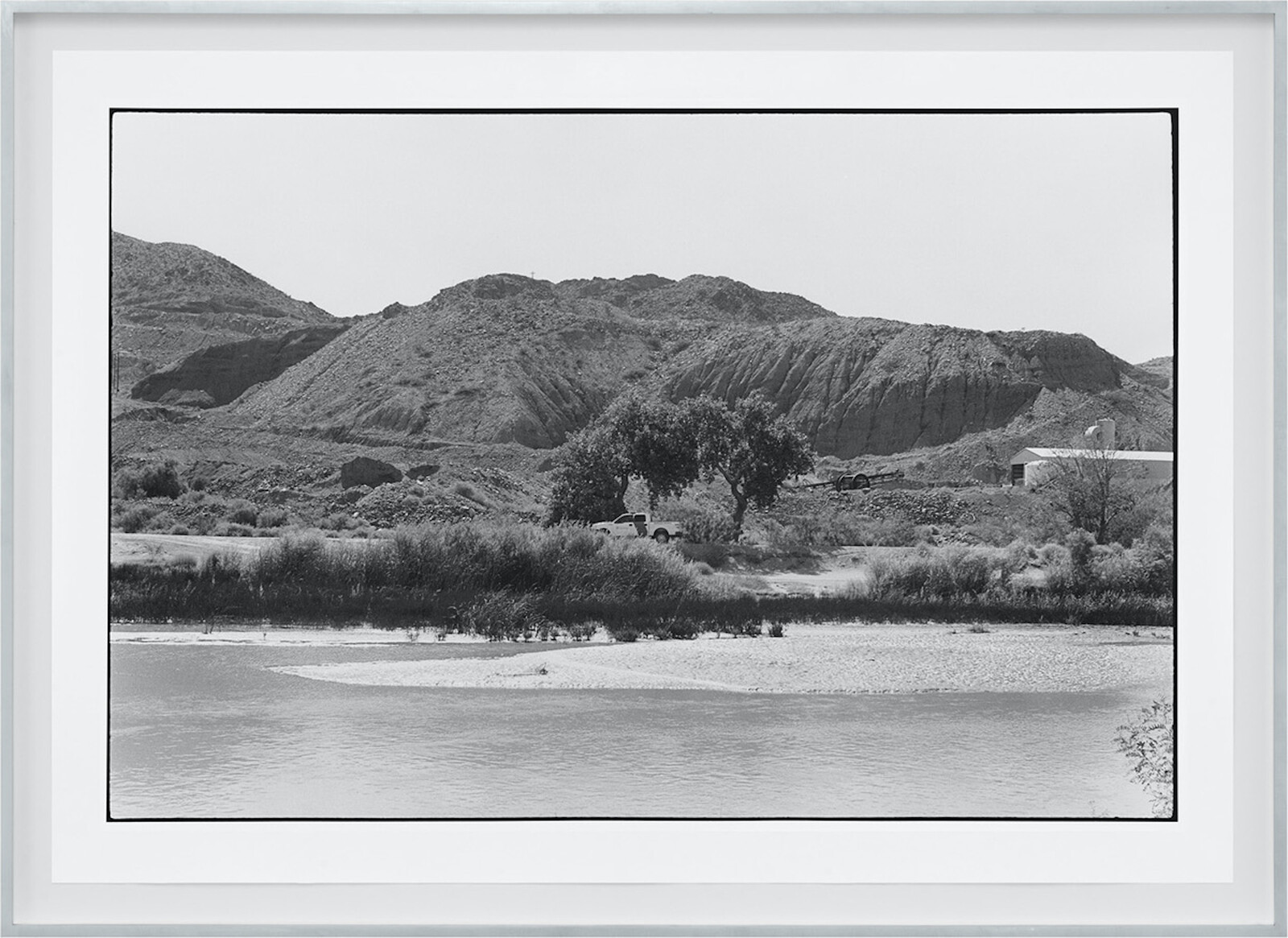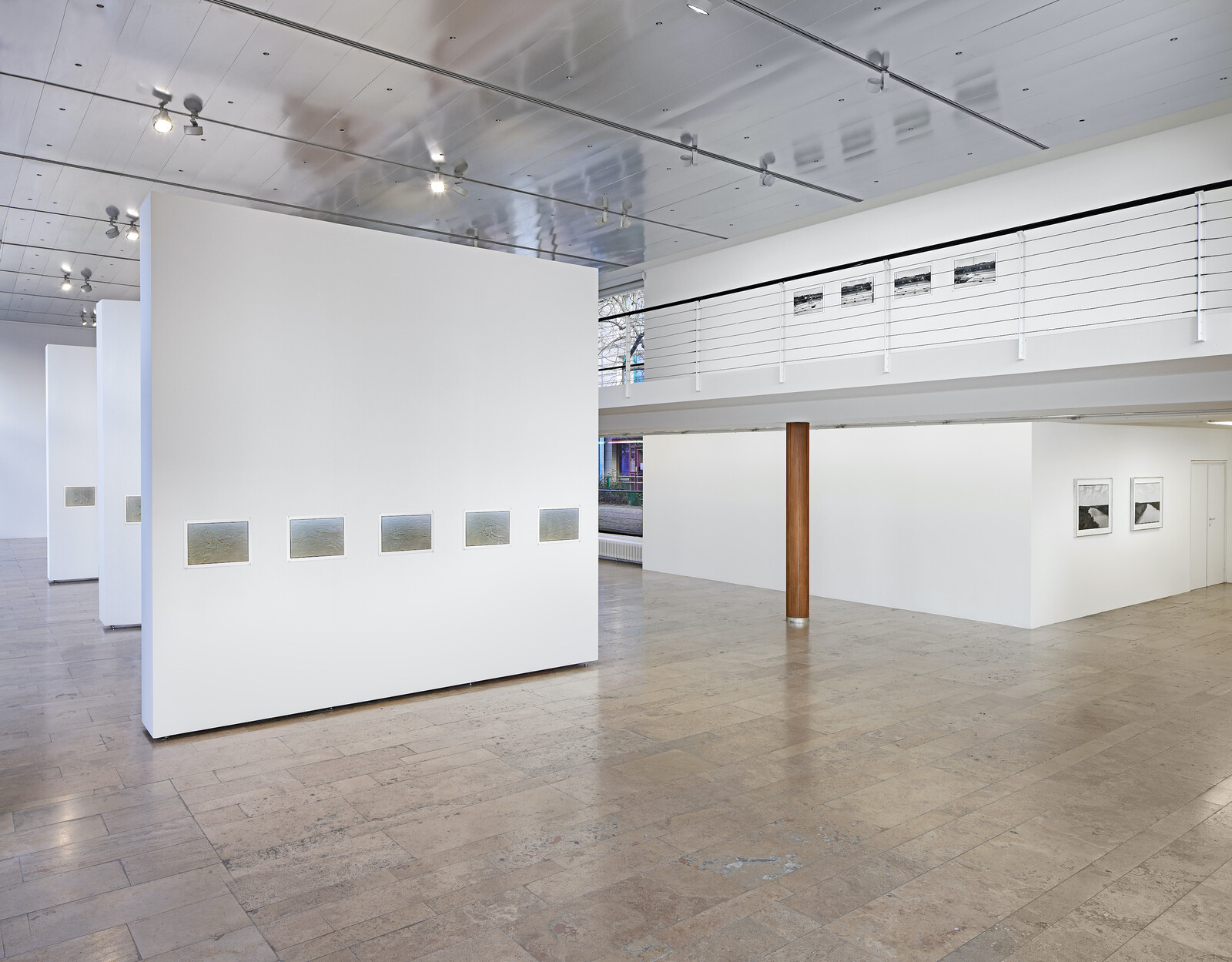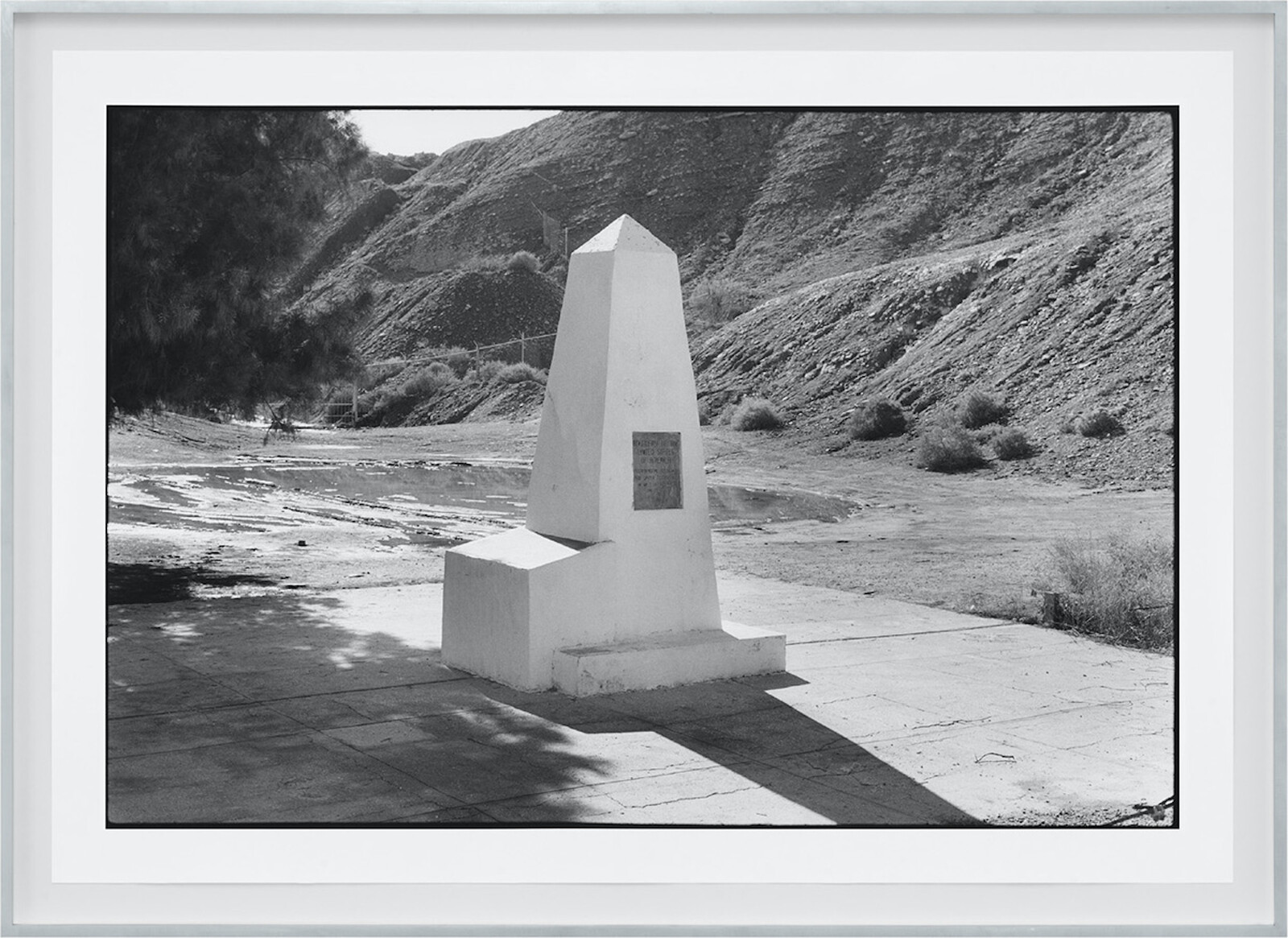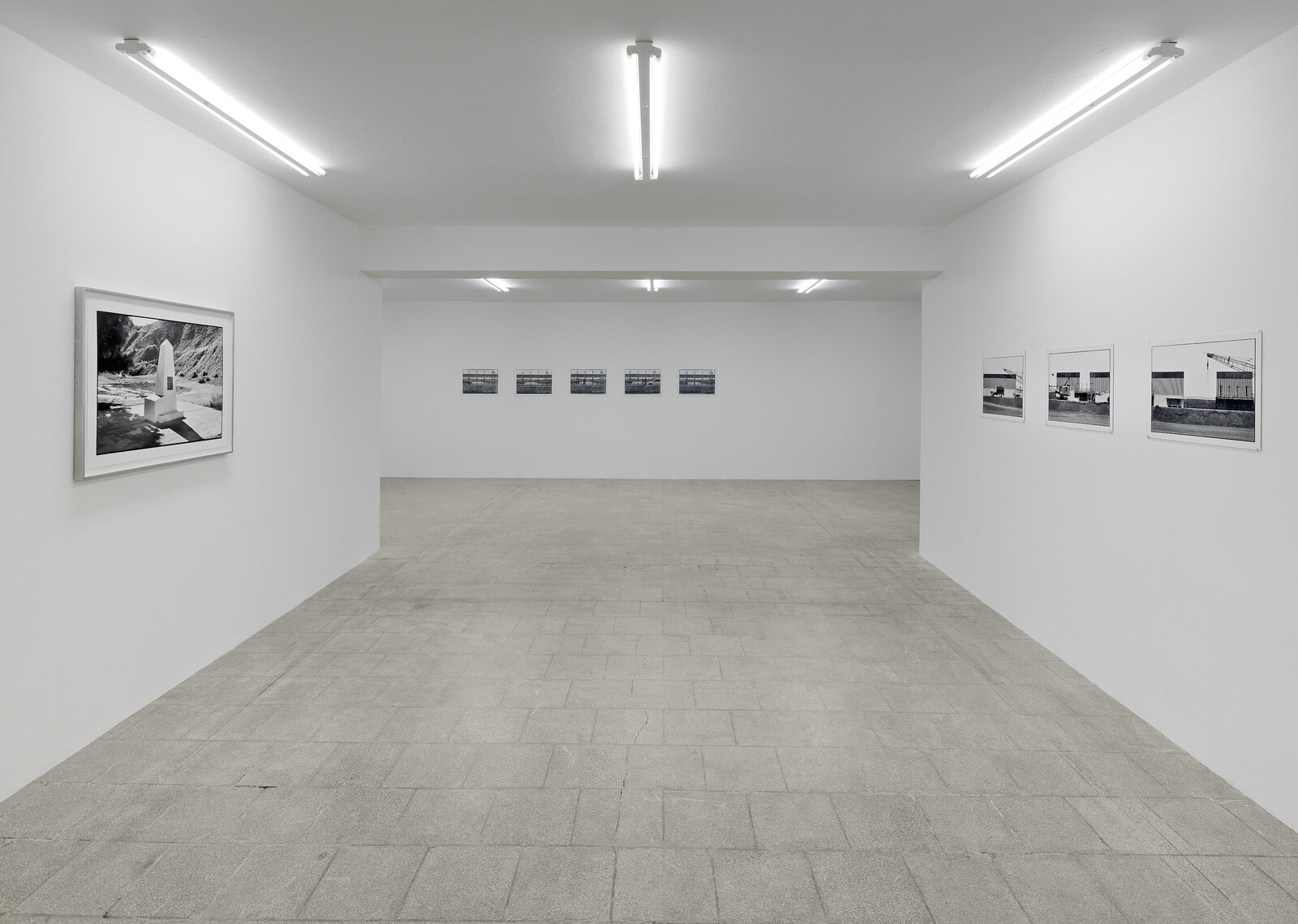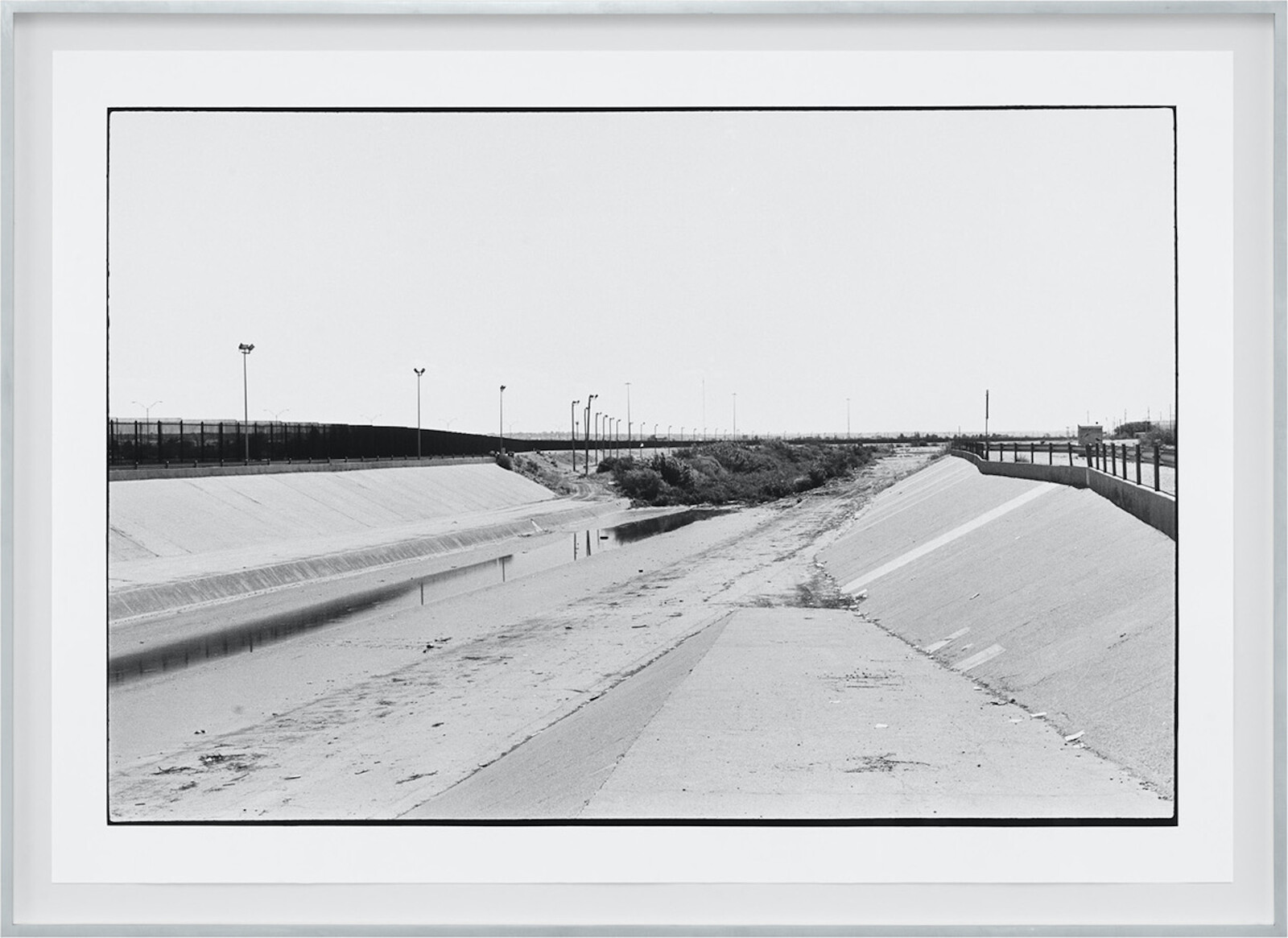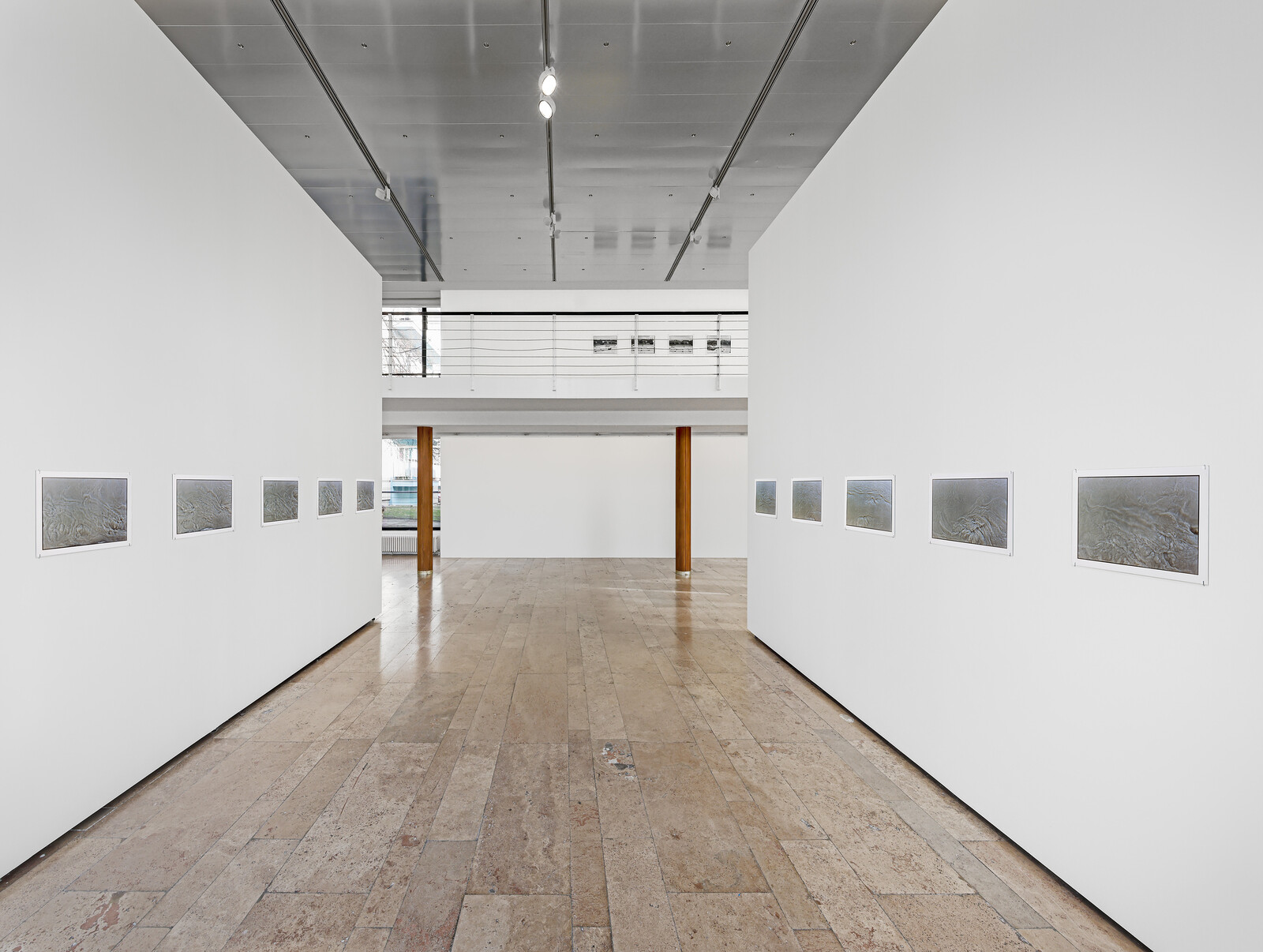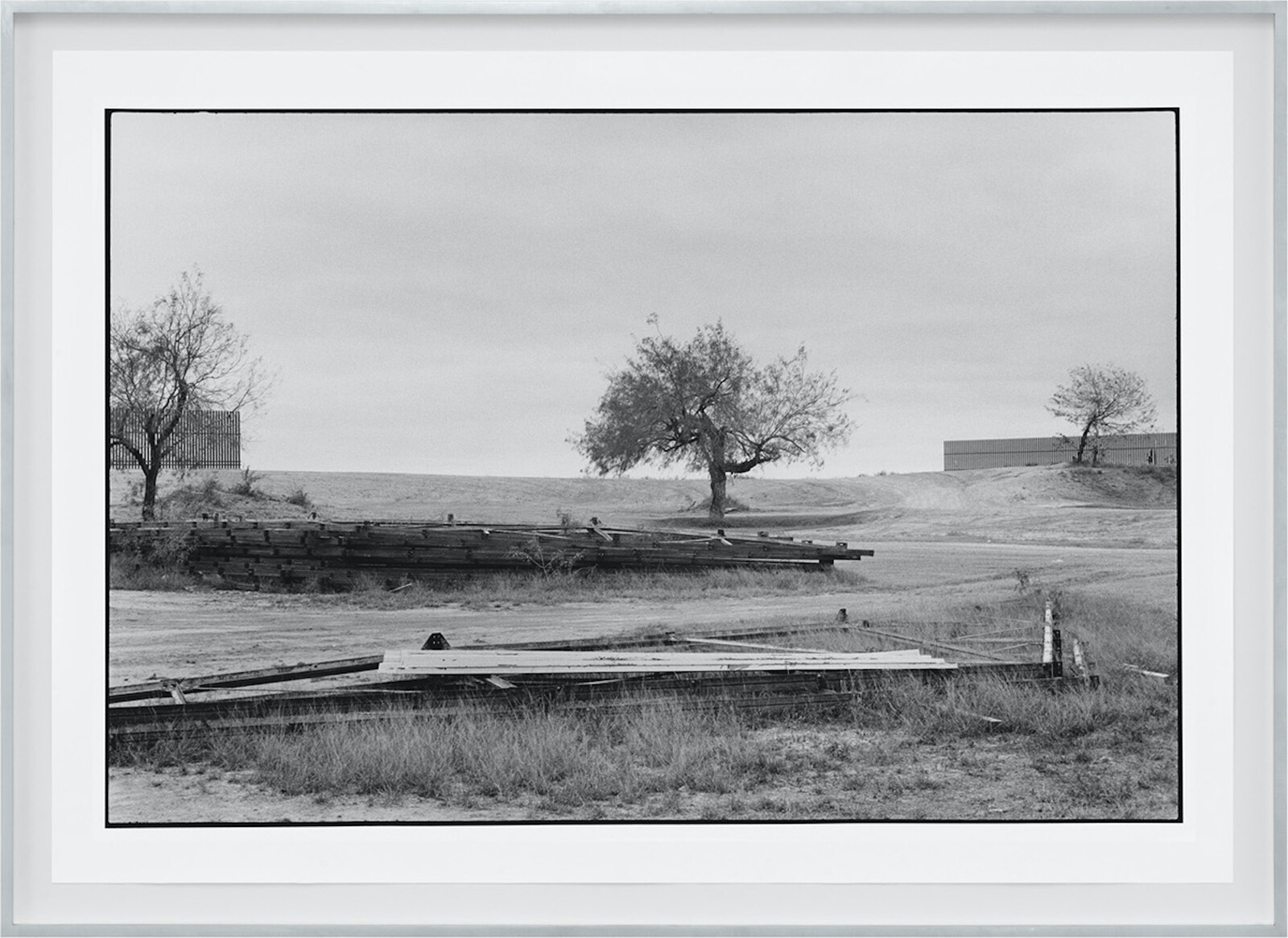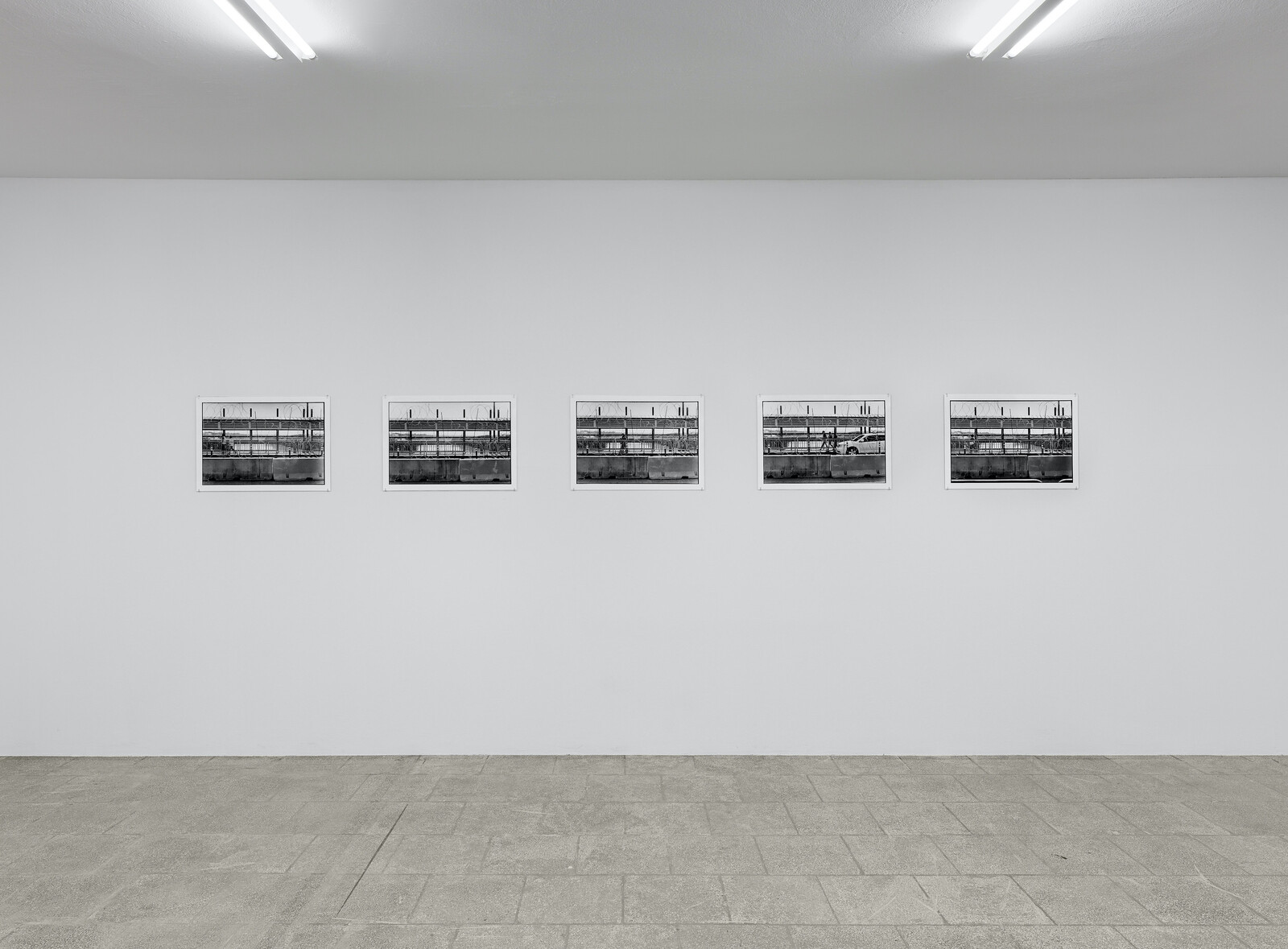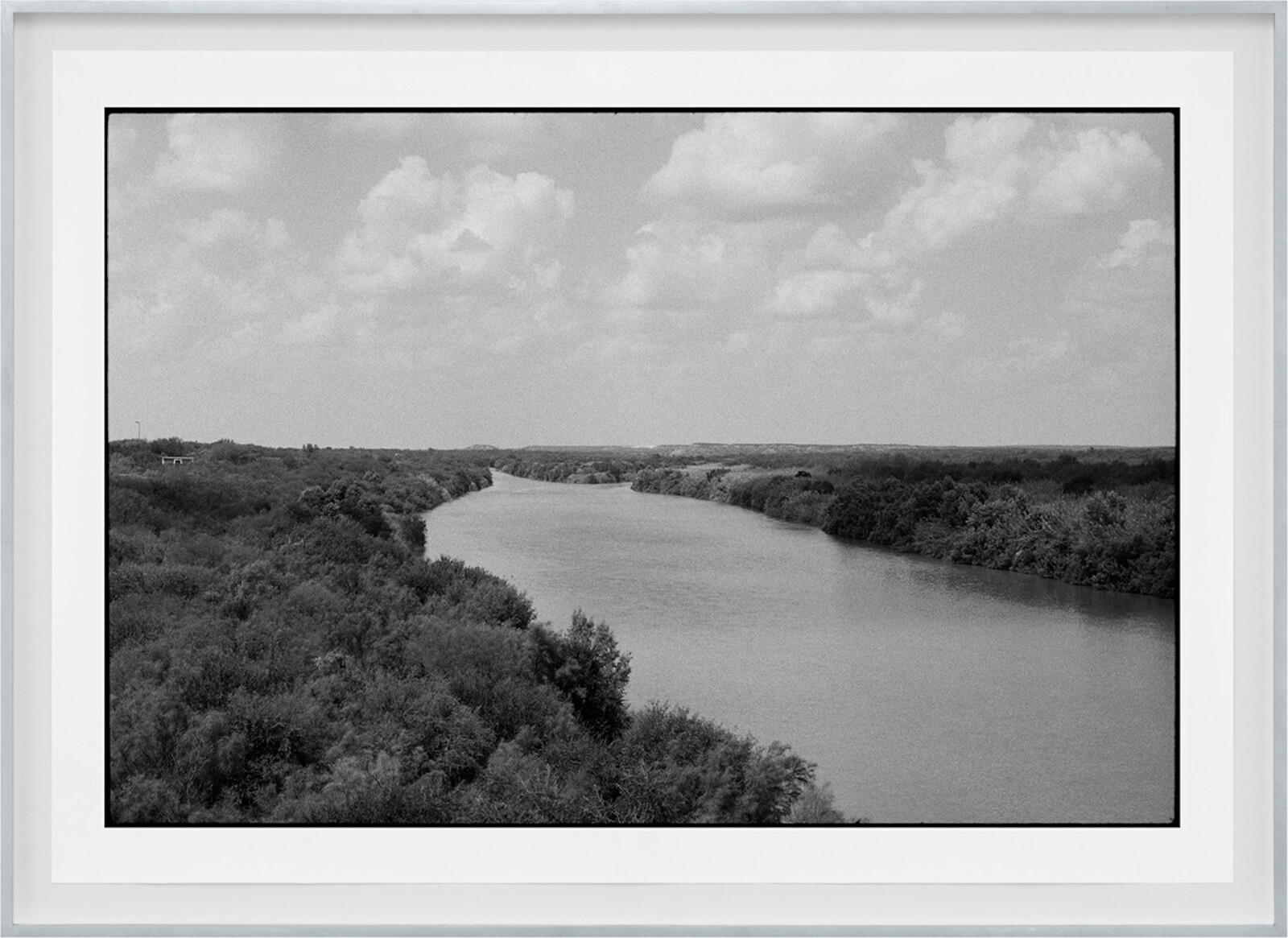Art historian Darby English describes humans’ relationship to the natural world as “an interchange of flow and force,”1 a phrase that also evokes the way geological forces are harnessed to mark political boundaries. Zoe Leonard’s epic photographic work Al río / To the River, created between 2016 and 2022, comprises approximately 500 black-and-white and 50 color photographs of the river that marks the border between the United States of America and Estados Unidos Mexicanos. Called the Rio Grande by Americans and the Rio Bravo by Mexicans, the numerous violent modifications the river has undergone testify to this entanglement of flow and force: over the last century engineers have forcibly straightened and shortened its meandering natural course by nearly 67 miles, lining its base in concrete so that it may never shift its channel again. The river’s edge is alternately home to cities, towns, border patrols and facilities, grazing animals, and open expanses. In some places it flows wide and mighty, while in others no water runs through, and its cement embankments form what scholar C. J. Alvarez describes as “a massive trapezoidal canvas for graffiti.”2
Before Leonard zooms out to capture this interchange, she zooms in. Upon entering “A View from the Levee” at Capitain Petzel’s glimmering modernist cube in Mitte, we are immediately thrust into a series of tightly cropped photographs of the river water’s surface. A series of forty images, the work Prologue is installed in a serial manner on staggered walls that fill the gallery’s ground floor. Here, we see various permutations of the water’s churning surface rendered in a mucky greyish brown. Leonard brings us so close to her subject that we get lost in its textures: frothing bubbles, small waves, rifts, and currents. The river’s waters appear less fluid than congealed, almost lumpy. There is a gooey thickness, practically plasticine, in these extreme closeups that gesture less towards a river’s majesty than its malleability as both a symbol and a subject: its perpetual flux, its resistance to neat or tidy signification.
In a conversation with the curator Suzanne Cotter, Leonard explained that looking closely at the river emerged from her desire to “observe the multiple and complex pressures that bear down on this thin line of moving water” and thereby to think about a larger social and political landscape.3 Leonard conceived of the project in the aftermath of the US presidential election in 2016 and the xenophobic policies ushered in by the Trump regime. The focus of her series, however, is not on human stories and objects of migration, but on the landscape itself—both in its “natural” and built forms. In following the river, Leonard not only traces a political boundary and its infrastructures, but also cuts through other key issues of our time: questions of land use, climate change, water rights, immigration, and law enforcement. In works like On the Gateway to the Americas Bridge, Laredo (2019/2022), By the Railroad Bridge, El Paso (2018/2022), and Untitled (2020/2022)—installed on the gallery’s lower level, which features more documentary-style images—Leonard’s camera seems impassively to surveil various elements of border landscape: bridges lined with barbed wire, the construction of border fortifications, railway bridges, and patrolling automobiles. There are very few people to be seen in these images and, when they do appear, it’s always at a distance and partially obscured. In some photographs, like A View from the Levee or From the levee, Ojinaga (2017/2022), border patrol pickups have camouflaged themselves amidst the craggy landscape. While Leonard’s frank explorations of this liminal zone bear some resemblances to the typological projects of artists like Bernd and Hilla Becher, her own position as a photographer holding an American passport in a border territory emerges as a charged subcurrent in her depictions of these largely empty swathes of land, water, and infrastructure—particularly in how close she can come to them. “The border is a dividing line and an agent of relation,” Catherine Facerias and Élisabeth Lebovici write in a publication accompanying the project. “It is an area of juxtaposition, a territory of edge to edge. Simultaneously threshold and act of construction, determining our relation to the other: I am here, I inscribe myself, I establish myself.”4 In resisting the role of revealing the people who occupy this zone, Leonard instead inscribes herself. Leonard shot these works “in plain sight,” meaning not that the views that she captured were available to all, but that in aiming to get as close to the river as possible from the US side without requiring special permissions, she photographed what she could access—to the limit of what her citizenship would allow her.
Darby English, “Course, Track, Flow,” in Al río, To the River (Berlin: Hatje Cantz, 2022), 45.
C. J. Alvarez, “A Brief History of the River,” Ibid, 21.
Zoe Leonard in conversation with Suzanne Cotter, MUDAM, 24 February 2022: https://www.youtube.com/watch?v=4zlkN3hrEt0 (last accessed 30 March 2022).
Catherine Facerias and Elisabeth Lebovici, “Borderlangue,” Al río, To the River, 28.

